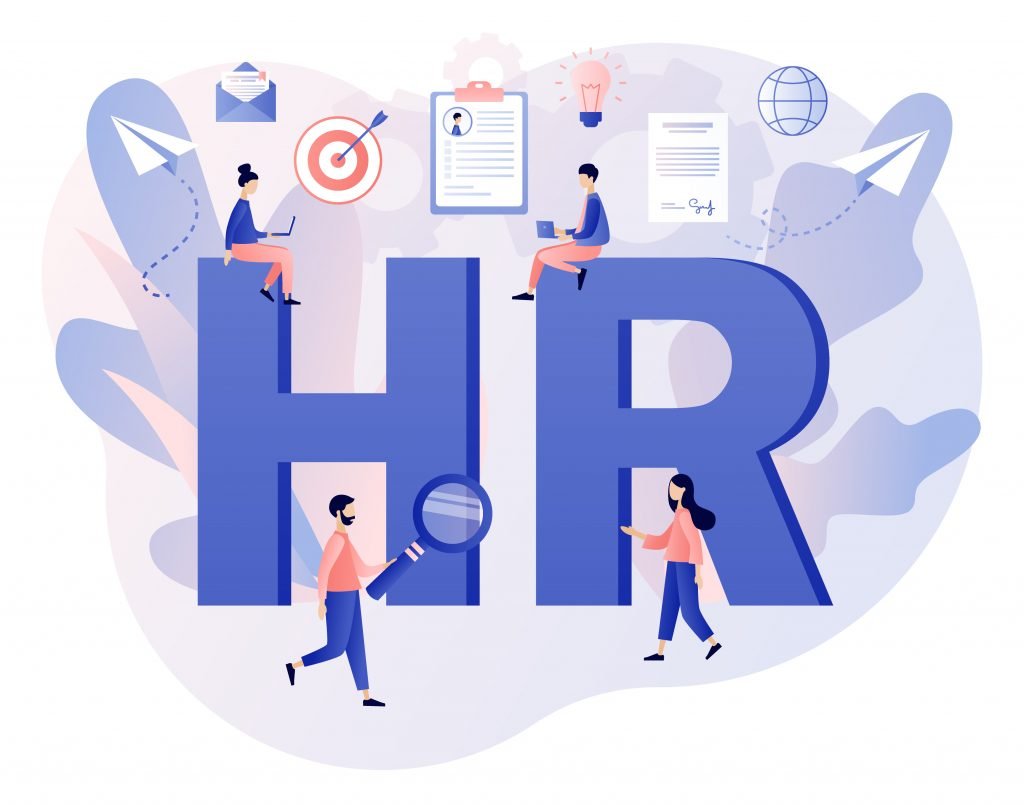Unpacking HR LV: Your Guide To Human Resources Levels And Roles
Detail Author:
- Name : Alexa Reichert
- Username : clare97
- Email : markus83@hotmail.com
- Birthdate : 2001-03-26
- Address : 89142 Strosin Station Veumburgh, OR 23121
- Phone : 781-454-9225
- Company : Streich-Reinger
- Job : Waste Treatment Plant Operator
- Bio : Veniam ad velit enim aut esse. Tempora dolorem et ea velit molestiae sapiente et debitis. Ipsa fuga illum rerum reiciendis.
Socials
instagram:
- url : https://instagram.com/dean.feeney
- username : dean.feeney
- bio : Voluptatibus aut amet sit sequi laboriosam. Tempora saepe sint corporis odit quis et illum.
- followers : 5223
- following : 2931
linkedin:
- url : https://linkedin.com/in/dfeeney
- username : dfeeney
- bio : Magni ipsum deserunt et nihil id beatae est.
- followers : 6596
- following : 1451
facebook:
- url : https://facebook.com/deanfeeney
- username : deanfeeney
- bio : Assumenda cupiditate consequatur dignissimos.
- followers : 5635
- following : 1407
tiktok:
- url : https://tiktok.com/@feeneyd
- username : feeneyd
- bio : Optio quo quia impedit maiores dolor.
- followers : 134
- following : 2682
Have you ever wondered what exactly goes on in the world of Human Resources, or perhaps what the different levels and roles within HR truly mean? Well, today, we're going to take a closer look at something we call "hr lv," which really just speaks to the diverse and dynamic structure of the HR department. It’s a place where a lot of important things happen, and the people who work there are pretty special, too. You see, HR is often thought of as this amazing department, full of truly amazing people.
As a somewhat new HR professional myself, working at the headquarters of a big company, a Fortune 500 firm actually, I've seen firsthand how varied and interesting this field can be. My goal here is to share some fun stories and real-world experiences from the HR side of things. It's about giving you a bit more insight into HR abilities, and also, in a way, helping you get better at handling workplace situations.
So, whether you're thinking about a career in HR, or you just want to get a better grip on how companies manage their people, this article is for you. We'll explore what makes HR tick, the different jobs you might find there, and why these professionals are so important for any successful business, too. It’s quite a lot to cover, but we'll go through it together, pretty much.
Table of Contents
- What is Human Resources (HR)?
- The Many Faces of HR: From Strategy to Small Details
- Understanding HR Roles and Levels (HR LV)
- HR in Action: Daily Tasks and Real-World Challenges
- Why HR is So Important for Businesses
- Career Prospects in Human Resources
- Conclusion
What is Human Resources (HR)?
At its heart, Human Resources, or HR, is the group of people who make up the workforce of any organization, business area, or even a whole economy. It's that, or rather, it can be a narrower idea, like human capital, which focuses on the value people bring. In simpler terms, HR is the department or team within a company that helps manage both potential and current employees. HR professionals, you see, work on specific tasks to bring in new talent, hire them, and help them succeed. This department, in fact, manages the entire journey of an employee, from the very first contact to when they move on.
Human Resources (HR) works to make and keep a productive and compliant work environment. This means ensuring that everyone can do their best work while following all the rules and guidelines. HR professionals, quite literally, focus on managing a company's most valuable resource: its people. They make sure employees have what they need for their tasks, which is very important. Human resources management (HRM), in some respects, is a planned way of managing a company's workforce to help meet its overall goals. Managing human resources often means looking over the entire employee experience, too.
The Many Faces of HR: From Strategy to Small Details
The HR department, as I mentioned, is quite a wonderful place, and the people who work there are truly remarkable. They can be very polished and professional in public settings, yet also capable of handling everyday, practical matters. Sometimes, you might even see them sitting at the head table during important meetings. They can, for example, have big, long-term conversations with the boss about talent plans and how the company is structured. But then, almost at the same time, they might also be dealing with very small, everyday issues, like figuring out compensation for just half a month. It's a wide range of responsibilities, you know.
This ability to switch between big-picture thinking and tiny details is what makes HR so unique. They are the ones who connect the grand vision of the company with the day-to-day realities of its people. This means they are often the bridge between management and employees, trying to make sure everyone feels supported and heard. It's a balancing act, to be honest, and it requires a lot of adaptability and a pretty good sense of what's going on with people, too.
Understanding HR Roles and Levels (HR LV)
HR, as a department, has many different job titles, and these positions come with various duties and responsibilities at different levels. This is where the idea of "hr lv" really comes into play, referring to the distinct tiers and functions within the human resources field. Let's break down some of these roles and what they typically involve, you know, to give you a clearer picture.
Intern HR: Starting Your Path
An HR Intern is usually a college or graduate student, just starting out. Their main job is to help the HR department with various tasks. This could mean helping with paperwork, doing some research, or even assisting with event planning. They get to see how a real HR department works, and it's a great way for them to learn the ropes. It's a foundational step, you see, for anyone interested in a career in this field, giving them a taste of the day-to-day operations, pretty much.
Traditional HR Functions: The Core Work
In a more traditional sense, HR professionals solve problems related to human resources within one or more specific areas. For example, if someone is in HR recruitment, their main job is to meet the hiring needs of other departments. This involves finding the right person for the right job, ensuring a good match between the candidate and the role. They work to complete the hiring request and bring the process to a close. This could be, arguably, one of the most visible parts of HR's work, ensuring the company has the talent it needs to operate, and stuff.
HR Management: Orchestrating the Workforce
Human resources management (HRM) is a structured way of handling a company's workforce to help achieve its organizational goals. This includes overseeing the entire employee journey. HR professionals manage important legal documents, company rules, and various government regulations. They figure out which rules apply to their organization and then find good ways to teach employees about them and make sure they are followed. This is a very important part of keeping the company running smoothly and fairly, you know.
Strategic HR: Shaping the Future
Human resource management also involves creating personnel policies and procedures that support the company's business goals and long-term plans. A central part of this mission is helping to create a culture that encourages growth and positive interaction. This means HR is not just about daily tasks; it's also about looking ahead, working with company leaders to plan for the future workforce, and making sure the organization has the right people in the right places to succeed. This strategic side is where HR really helps shape the direction of the company, you know, in a big way.
HR in Action: Daily Tasks and Real-World Challenges
The everyday life of an HR professional is full of diverse tasks and, honestly, some interesting challenges. It's rarely a dull moment, as a matter of fact, because you're always dealing with people and their varied needs. Let's look at a few examples that really show what HR does on a daily basis.
Interview Coordination: A Balancing Act
When HR arranges an interview, it often means coordinating schedules with several different departments. This might even involve changing other meeting times or work plans just for that one interview. It's very important to respect everyone's time, as this is a basic professional courtesy. As an HR person myself, I actually find it quite frustrating when people don't show up or are late without telling anyone. It wastes everyone's time, you know, and it's just not considerate, pretty much.
Career Growth Paths: Big Company vs. Small Company
Many companies face similar issues when it comes to career advancement. In large companies, while the path to moving up is often clear, it can feel like a huge crowd trying to cross a narrow bridge. If the people above you don't leave, it's really hard to move up. Smaller companies, on the other hand, usually have less clear promotion paths. Moving up often depends a lot on luck, so it's a situation that HR professionals, perhaps, find easier to accept, in a way. This is something we often discuss, you know, how different environments shape career prospects.
Recruitment Ethics: Avoiding the "Pitfalls"
In today's connected world, job postings can be very inconsistent, and there are many unreliable companies out there. Some job ads, for example, list very high salaries but have incredibly simple job requirements, making it seem like an easy opportunity. But when you go for the interview, you might find it's a complete trap! This is often a case of HR, sadly, misleading you. It's a situation that HR professionals should really try to avoid, as it damages trust and wastes everyone's time, you know, quite significantly.
Why HR is So Important for Businesses
Human resources (HR) creates and keeps a productive and compliant work environment. This department handles the complete employee journey, from the moment someone considers joining to their last day. HR professionals make sure employees have the necessary tools and support for their tasks. Human resources management (HRM) is a structured way of managing a company’s workforce to help meet its overall goals. Managing human resources involves overseeing many aspects of employee well-being and company operations, you see. They are, in essence, the backbone that supports the people who make the business run.
HR professionals manage legal papers, company rules, and official regulations. They figure out what applies to their organization and find good ways to teach employees about these rules and make sure they are followed. This includes creating personnel policies and procedures that support business goals and plans. A key part of this work is helping to create a culture that really encourages positive interactions and growth. This is quite central to their mission, you know, helping everyone feel like they belong and can contribute, too.
Career Prospects in Human Resources
The human resources field has a very promising future, with a big demand in the job market. Almost every company needs HR, which is pretty amazing. As companies in our country start to care more about how they manage their people, HR professionals who have the right certifications are becoming highly sought after by businesses. This means there are many opportunities for growth and advancement in this field, which is, honestly, quite exciting for anyone considering it. It's a stable career path, you know, with lots of room to develop, too.
The possibility of moving up and getting better pay is a real draw for many. With the increasing importance of human capital, the demand for skilled HR professionals is only going to grow. Companies are realizing that their people are their most valuable asset, and they need experts to manage them well. So, if you're thinking about a career in HR, it's a pretty good time to get started, as a matter of fact. Learn more about HR on our site, and link to this page Discover more HR insights here.
Conclusion
We've taken a good look at the world of "hr lv," exploring what Human Resources is all about, the different jobs people hold within it, and the many important things they do every day. From the strategic talks with company leaders to the small, everyday details, HR professionals play a truly important role in making sure a company runs well and its people are supported. They help create a good work environment, manage the entire employee journey, and make sure everyone feels valued. It's a field that requires a lot of different skills, and it's constantly changing, too.
Understanding the various levels and functions within HR, you know, can help you appreciate the work these professionals do, and perhaps even inspire you to consider a path in this interesting area. It's a field with a lot of potential for growth and a significant impact on how businesses operate and how people experience their work lives. So, the next time you think about a company's success, remember the dedicated HR teams working behind the scenes, making it all possible, pretty much. For more general information about human resources, you might find resources from organizations like SHRM (Society for Human Resource Management) quite helpful.

Empowering Your HR Team: How To Celebrate International HR Day In The

Hr Stock Photos, Images and Backgrounds for Free Download

How To Obtain a Job in Human Resources